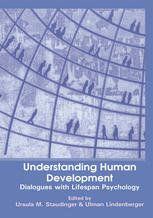

Most ebook files are in PDF format, so you can easily read them using various software such as Foxit Reader or directly on the Google Chrome browser.
Some ebook files are released by publishers in other formats such as .awz, .mobi, .epub, .fb2, etc. You may need to install specific software to read these formats on mobile/PC, such as Calibre.
Please read the tutorial at this link: https://ebookbell.com/faq
We offer FREE conversion to the popular formats you request; however, this may take some time. Therefore, right after payment, please email us, and we will try to provide the service as quickly as possible.
For some exceptional file formats or broken links (if any), please refrain from opening any disputes. Instead, email us first, and we will try to assist within a maximum of 6 hours.
EbookBell Team

5.0
70 reviewsK. Warner Schaie I am pleased to write a foreword for this interesting volume, particularly as over many years, I have had the privilege of interacting with the editors and a majority of the con tributors in various professional roles as a colleague, mentor, or research collaborator. The editors begin their introduction by asking why one would want to read yet another book on human development. They immediately answer their question by pointing out that many developmentally oriented texts and other treatises neglect the theoretical foundations of human development and fail to embed psychological constructs within the multidisciplinary context so essential to understanding development. This volume provides a positive remedy to past deficiencies in volumes on hu man development with a well-organized structure that leads the reader from a general introduction through the basic processes to methodological issues and the relation of developmental constructs to social context and biological infrastructure. This approach does not surprise. After all, the editors and most of the contributors at one time or an other had a connection to the Max Planck Institute of Human Development in Berlin, whether as students, junior scientists, or senior visitors. That institute, under the leader ship of Paul Baltes, has been instrumental in pursuing a systematic lifespan approach to the study of cognition and personality. Over the past two decades, it has influenced the careers of a generation of scientists who have advocated long-term studies of human development in an interdisciplinary context.